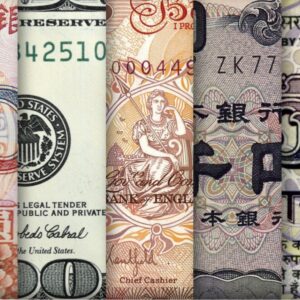
- This project has passed.
Topics in international political economy of money | graduate colloquium
IPE of Money Graduate Workshop Berlin
Start time:
January 14 - January 16
EST
Location:
Tbd, Berlin, Berlin
Type:
Workshop

Local Partners
Description
Find the full program here.
Recent years have proven to be significant for the development of the global financial system. In the aftermath of Covid-19, the monetary and fiscal response that followed and the current geopolitical tensions related to the war in Ukraine, we have seen the return of inflationary pressure around the world and the abandonment of the easy money regime and zero interest rates. This has created a significant pressure on developing world sovereign debt, funding conditions and economic development with rising questions how can the international dollar system protect these actors from harmful effects of potential outflows and rising volatility. With the growing concerns regarding climate change effects of the modern economic process, the question of how the financial system can play a role in facilitating green transition has become more and more urgent. Finally, the rise of blockchain and its implementation in finance has seen the challenges faced in the cryptocurrency space and steady developments in other areas such as CBDCs, different types of smart contracts etc.
In this period, the IPE analytical framework for approaching these processes has been evolving as well. Many of the conceptual elements that have been developed in the wake of the financial crisis have been tested against these new realities. The analysis based on stylized balance sheet schemes has seen increased use. Discussion on international and domestic hierarchy of money, imposition of discipline and enabling elasticity by private and public actors under diverse conditions, evolution of the dealer of the last resort function and general development of market based finance arrangements – to name a few.
Still fundamental conceptual questions are still open. What is the exact monetary role of the state within this framework? What gets accepted as means of payment and under what conditions? How should we conceptualize the relationship between economic, monetary and political power, focusing on the capacity to provide liquidity by expanding the liability side of balance sheets of entities at a higher level of hierarchy of money? How exactly to conceptualize inflation among the set of different processes that can take place at the bottom of the hierarchy i.e. at the layer between monetary and real economy? How should we understand the relationship between balance sheet analysis and cash flow analysis as has been utilized in the keynesian tradition? What is the specific role of derivatives in the hierarchy of money? This is clearly just a small sample of a wider set of questions that still demand discussion.
This one-day workshop would provide a space for graduate students doing research in the field of international political economy of money to address the current state of the analytical framework and current developments in the global financial system.
